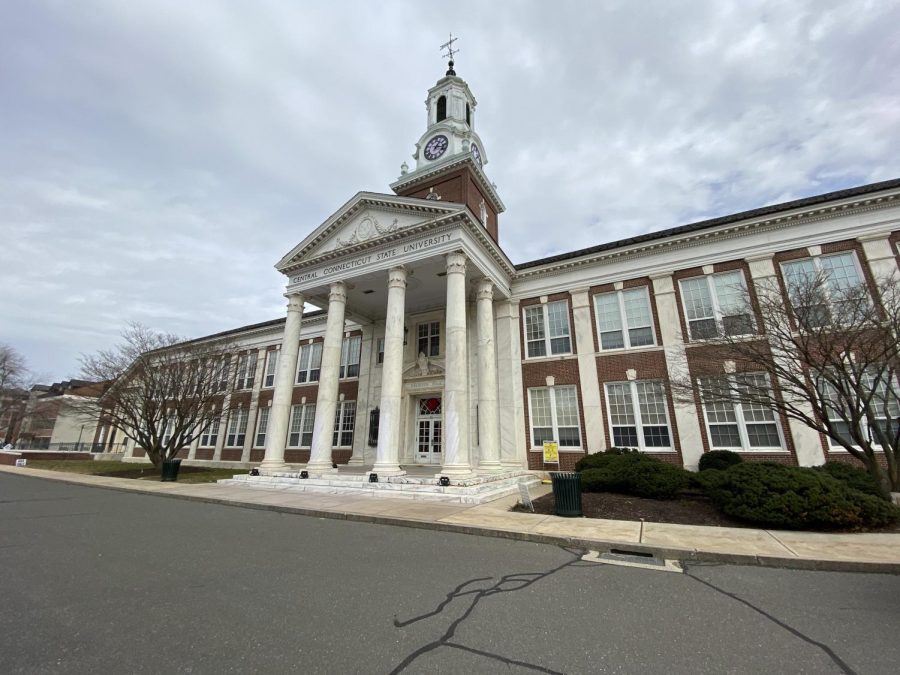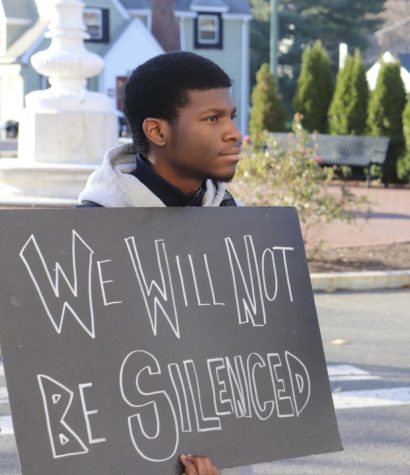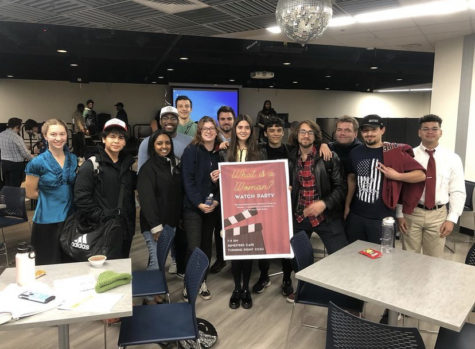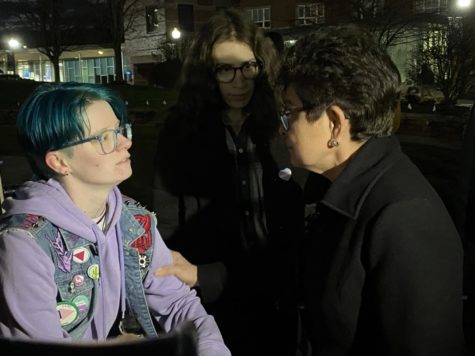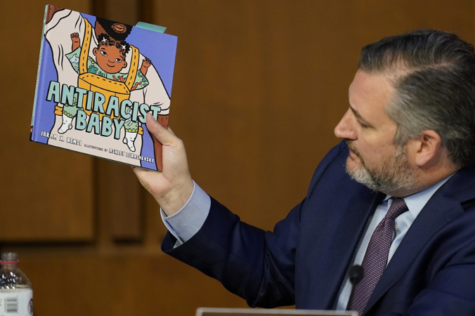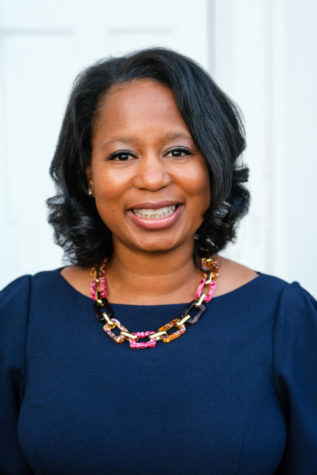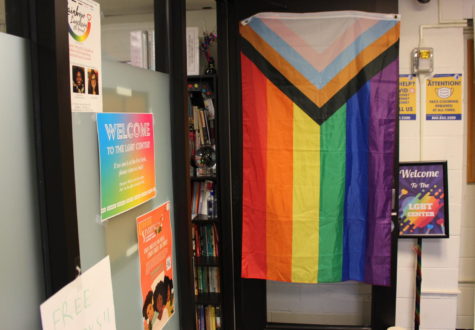CCSU President Zulma Toro Accused of Abusing Her Power
December 10, 2022
Abuse of power allegations made against Central Connecticut State University President Zulma Toro by Director of Institutional Advancement Lisa Bigelow came to light earlier this semester when Bigelow sent a mass email to faculty the morning of Tuesday, Oct. 5.
In that email, Bigelow shared a detailed account of what she called the “abusive treatment” she received from Toro and pointed to “a serious leadership problem that needs to be dealt with on this campus.”
“It’s time we and the Board hold Dr. Toro accountable for her anger-fueled behavior that leads to abusive treatment of members of the ‘Central Family,'” Bigelow wrote to her colleagues.
Bigelow said she first came under fire in 2019 after Toro reviewed a document produced by the University Planning and Budget Committee (UPBC) — a task force of the CCSU Faculty Senate — with recommendations for the 2020 fiscal year budget. According to the bylaws of the committee, its mission is to advise the president on the long-term goals, strategic planning process and budgetary priorities of the University,” and act as a forum so that their “recommendations reflect the concerns of the entire campus community.”
Bigelow, who was acting as UPBC chair at the time, shared the committee’s budget recommendations with Toro in early March. Three weeks later, the committee and other campus executive administrators met together with Toro to discuss and decide on the suggestions.
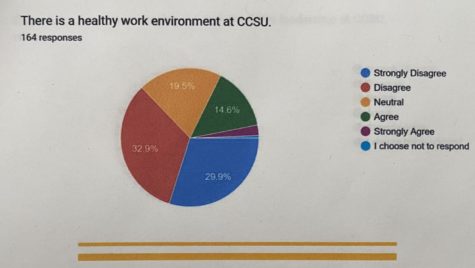
But what was typically a routine meeting turned into a shocking spectacle by the president, according to Bigelow and others. Toro erupted into a “tirade” in which she was “literally screaming about how the UPBC final report was insulting to her,” according to an account by Mark Jackson, then-president of the faculty senate, who shared details of the meeting in an email he sent to the rest of the UPBC in April 2019.
Bigelow, Jackson and another UPBC member regrouped as soon as the three-hour-long meeting came to a close, she said.
“Three of us [colleagues], stunned and bewildered, spoke for several minutes about the unexpected, unprofessional, uncivil and intentionally malicious outburst by President Toro and ultimately concluded we could not make sense of what had just happened and left campus. Speaking for myself, I left campus deeply traumatized,” Bigelow wrote.
Five days later, a similar meeting was held. This time, the alleged abuse was worse, according to Jackson.
“..There was another, longer, and more intense tirade…there were accusations that the UPBC Committee had conducted itself in an unethical and self-serving manner, and as a consequence, she could not trust any of the advice given by the UPBC,” Jackson wrote in his summary of the April 3, 2019 meeting.
Following this meeting, Bigelow resigned from her role as chair and member of UPBC and took a leave of absence until July 2019, through the Family and Medical Leave Act (FMLA).
“Toro’s behavior in the March 29 and April 3 meetings frightened, humiliated and belittled me to the point that I had to protect myself from further bullying and abusive behavior,” Bigelow wrote, explaining the reason for her resignation in a whistleblower complaint that she submitted to the Auditors of Public Accounts in September of 2019.
In that complaint, Bigelow outlined her belief that Toro had repeatedly violated the code of conduct of the Connecticut State Colleges and Universities System. When she has discussed her concerns with colleagues, many would say they felt the same way, but couldn’t say anything, according to Bigelow.
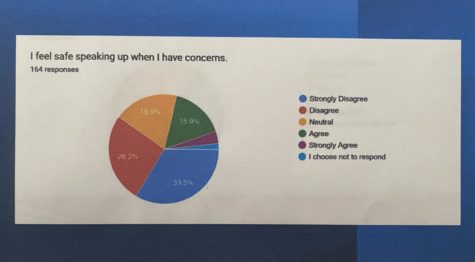
“I know something bad will come if I raise my voice so I’m just going to duck and cover and do my job,” Bigelow said in October during an interview with The Recorder.
According to Bigelow, fear of retaliation is a common concern among faculty.
“If you don’t come forward, you are silently saying what’s happened is okay and it’s okay for it to happen to somebody else,” Bigelow said.
Both faculty unions on campus, American Association of University Professors (AAUP) and State University Organization of Administrative Faculty (SUOAF), implemented campus climate surveys among their membership.
A majority of SUOAF members — 70.7% — reported that they “agree” or “strongly agree” that there is a culture of fear and intimidation at CCSU, according to the survey conducted on Oct. 11, 2022.
Of the 211 professors who held SUOAF membership, 164 responded – a 77.7% response rate, according to Bigelow, who currently serves as SUOAF Union President.
Upon Bigelow’s return from her FMLA leave of absence in July 2019, she was notified by human resources that she should vacate her office in Davidson Hall as she had been re-assigned an office in East Hall, Bigelow said.
“I was told at the same time, that a ‘business decision’ had been made to relieve me of all of my professional responsibilities. It was nearly one full year before I was asked to do any University work again. During that period, I came to campus every day to sit idle, counting the ceiling tiles in my office, feeling guilty I was cashing a paycheck. To use current terminology, I was ‘quietly fired.’ The goal was clearly to push me to resign or retire, but I persevered,” Bigelow wrote in her Oct. 2022 email to faculty.
“I honestly believed that I would never smile again in my life,” Bigelow told The Recorder.
Nothing came of the complaint Bigelow filed with state auditors, according to CCSU and Bigelow.
“I know from a trusted source at the System Office that the findings were swept under the carpet and were deemed too minor to be looked at,” Bigelow said. “I’ve lost all faith in the Board of Regents and the auditors of public accounts.”
At the end of October, Bigelow and Toro had a meeting, and she said the president showed a willingness to work together to improve working conditions and the campus climate.
“I’m cautiously optimistic about the conversation I had with Dr. Toro but time will tell,” Bigelow said.
AAUP Chapter President Thomas Burkholder, who has taught chemistry at CCSU for over 30 years, declined to comment on the topic.
History Professor Matthew Warshauer said in November that he wants Toro to retire so they can rebuild the institution.
“If there is one reason why I’m at odds with the President of Central Connecticut State University right now is because she is driving this institution into the dirt,” Warshauer said during an interview with The Recorder.
Warshauer said he sent emails through the University Senate Listserv to faculty in late September, saying it’s the most accessible public forum at CCSU. He said he feels students should be aware of this incident because it’s their institution and the “disfunction” has an impact on faculty, which will end up impacting students.
Several faculty and staff members reached out anonymously agreeing with Warshauer’s criticism of Toro.
“She is an incredibly angry person,” Warshauer said. “She has difficulty controlling her emotions.”
Warshauer claims that Toro belittles people in meetings and retaliates against those she feels haven’t done what she wants them to do.
“I believe Zulma Toro is a fundamentally unethical, mean-spirited person,” Warshauer said.
Warshauer said there is tremendous fear among faculty, staff and administration. He said he fears retaliation for telling the truth.
“Her leadership here is absolutely and utterly defined by disfunction and failure,” Warshauer said. “It has trickled down to every level of this university.”
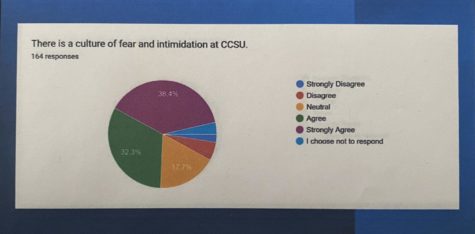
In a statement released by the university, Toro said the allegations of abuse and misconduct are untrue.
“The complaint dates back to a 2019 issue and was previously investigated. We have nothing new to add at this time,” said CCSU spokesperson Janice Palmer in an email to The Recorder last month.
